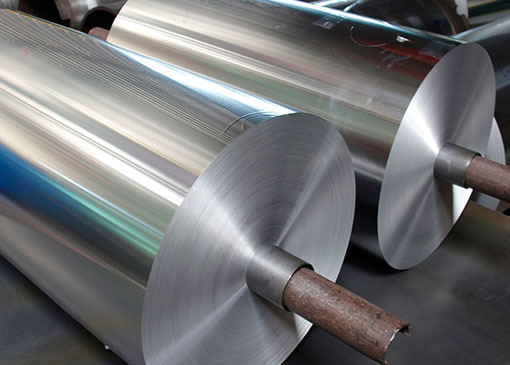Battery aluminum foil plays a crucial role in modern battery technology, particularly in lithium-ion and aluminum-ion batteries. Its superior physical and chemical properties make it an ideal material for battery manufacturing. Here are the main characteristics of battery aluminum foil in detail.
Excellent Conductivity
Battery aluminum foil has outstanding electrical conductivity, which allows it to efficiently conduct current. High conductivity not only enhances the charging and discharging efficiency of the battery but also reduces energy loss during operation.
Application: In lithium-ion batteries, aluminum foil is typically used as the positive electrode current collector, providing a stable path for current conduction.
Advantage: Improves overall energy efficiency of the battery and extends battery life.

Lightweight
Aluminum foil has a low density and is lightweight, significantly impacting the total weight of the battery. Lightweight batteries contribute to better portability and higher energy density, especially in mobile devices and electric vehicles.
Application: Used in various lightweight battery applications, such as laptops, smartphones, and electric vehicles.
Advantage: Reduces the overall weight of the device, enhancing its range and efficiency.
Excellent Corrosion Resistance
Aluminum foil has good corrosion resistance, allowing it to remain stable in the internal environment of the battery and not easily corroded by the electrolyte. This characteristic ensures the long-term stability and safety of the battery.
Application: Inside the battery, aluminum foil effectively prevents performance degradation caused by electrolyte corrosion.
Advantage: Extends battery lifespan and enhances battery safety.
High Mechanical Strength and Flexibility
Battery aluminum foil not only possesses high mechanical strength but also good flexibility. This makes it resistant to cracking during processing and capable of meeting complex manufacturing requirements.
Application: During battery production, the foil needs to undergo multiple winding and cutting processes, where strength and flexibility ensure it does not get damaged.
Advantage: Increases production efficiency and reduces the rate of defective products.
Thermal Stability
Aluminum foil has good thermal stability, allowing it to maintain stable performance in high-temperature environments. This is crucial for the safe operation of batteries under high load or high-temperature conditions.
Application: In electric vehicles and high-performance electronic devices, batteries need to withstand high-temperature operating environments.
Advantage: Improves the battery’s thermal management capability and prevents overheating issues.

Compatibility with Manufacturing Processes
Battery aluminum foil can adapt well to modern manufacturing processes, including coating, electroplating, and rolling. This compatibility provides significant advantages in mass production.
Application: In the production line of lithium batteries, aluminum foil can seamlessly integrate with other materials and processes.
Advantage: Simplifies production processes, enhances production efficiency, and reduces manufacturing costs.
Conclusion
With its exceptional conductivity, lightweight, corrosion resistance, high mechanical strength, thermal stability, and compatibility with manufacturing processes, battery aluminum foil is an indispensable material in modern battery manufacturing. As the demand for electric vehicles, renewable energy storage devices, and portable electronic devices continues to grow, the application prospects for battery aluminum foil will become even broader. Through ongoing technological innovation and improvement, battery aluminum foil will play an increasingly important role in future energy solutions.


